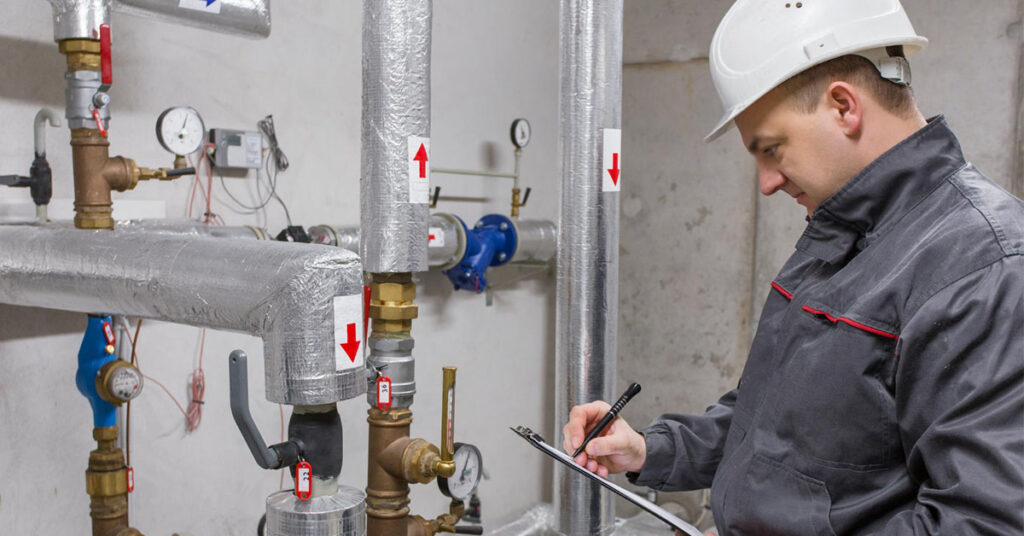General contractors play a crucial role in construction as conductors of a wide range of trades. However, when it comes to Plumbing in Dallas, Texas, a question often arises: can a general contractor do plumbing tasks effectively?
Plumbing is a vital component of any building, and general contractors have many responsibilities. In this exploration, we’ll take a look at whether a general contractor can do Plumbing in Dallas, Texas. Let’s get started.
Understanding Plumbing in Construction
Before deciding whether general contractors are suitable for Plumbing, it’s important to recognize Plumbing’s pivotal role in construction. The plumbing system facilitates water supply, drainage, and gas lines in buildings. The plumbing framework is essential to the functionality and habitability of a space, whether it’s a home or a commercial building in Dallas, Texas.
In addition to installing pipes, plumbing tasks require knowledge of local plumbing codes, adherence to safety standards, and a nuanced understanding of plumbing fixtures. Installation, repair, and maintenance of plumbing systems require precision to avoid issues like leaks, water damage and compromised structural integrity.
Can a General Contractor do Plumbing Tasks
As general contractors play an increasingly important role in construction, the question arises: Can general contractors truly handle plumbing tasks effectively in Dallas, Texas? The answer lies in the delicate balance between a general contractor’s expertise and Plumbing’s specialized requirements.
While general contractors excel at project management, coordination, and overseeing various trades, Plumbing requires a unique set of skills. Performing plumbing tasks requires a deep understanding of intricate systems, local codes, and troubleshooting skills. When it comes to highly specialized plumbing tasks that require in-depth knowledge and a dedicated focus, general contractors often lack the expertise.
Can a General Contractor Legally Perform Plumbing Work?
There are many jurisdictions in which general contractors are permitted to perform plumbing work. Generally, general contractors can do minor plumbing jobs in Dallas, Texas, that don’t need a specialized license. The tasks usually involve replacing faucets, unclogging drains, or fixing minor leaks.
It’s crucial to note that general contractors are only allowed to do certain plumbing jobs. It’s often a good idea to hire a plumber for anything beyond these minor repairs. Licensed professionals handle specialized plumbing work, including extensive installations, intricate repairs, or alterations to existing plumbing structures.
Is it Risky to Hire a General Contractor to Do Plumbing?
General contractors offer both benefits and risks when it comes to plumbing projects in Dallas, Texas. General contractors bring valuable skills in project management, coordination, and oversight, but Plumbing requires a closer inspection of associated risks. Such as:
Lack of Specialized Expertise
Plumbing work in Dallas, Texas, requires specialized expertise, which general contractors may not have. During plumbing installations or repairs, it’s important to understand complex systems, local codes, and potential complications. If you don’t have this specific knowledge, you could make mistakes that lead to problems.
Legal Compliance Concerns
General contractors may pose legal risks depending on local regulations in Texas. Performing plumbing work without a license can lead to code violations, legal consequences, and potential safety hazards.
Project Delays and Complications
A poorly executed plumbing task can cause project delays and complications. General contractors excel at managing various trades, but Plumbing requires a focused and experienced approach. Plumbing mistakes can cost you a lot of money in terms of repairs and setbacks.
Collaboration Challenges
The collaboration between specialized plumbers and general contractors is essential. Communication breakdowns or unclear roles can cause misunderstandings, delays, and suboptimal results.
Despite these risks, general contractors and plumbers can collaborate successfully. With a clear understanding of each party’s strengths and limitations, synergy can result in a well-coordinated project.
What is the Difference Between a General Contractor and a Plumber?
It’s crucial to understand the difference between a general contractor and a plumber to navigate construction. From planning to execution, a general contractor coordinates subcontractors, obtains permits, and ensures overall project success.
Plumbers, on the other hand, specialize in plumbing systems and perform installation, repair, and maintenance. Their expertise includes understanding codes, handling fixtures, and troubleshooting plumbing issues. Often, the success of construction projects depends on how well these different roles work together.
Advantages of Hiring a Licensed Plumber
A licensed plumber can perform plumbing tasks with precision and expertise with great ease. These are some of the benefits of hiring a licensed plumber in Dallas, Texas.
Specialized Knowledge
A licensed plumber undergoes extensive training, gaining specialized knowledge about plumbing systems, codes, and regulations. Their expertise ensures accurate installation, repair, and maintenance.
Code Compliance
Plumbers with proper licensing are familiar with local plumbing codes, ensuring all work meets regulatory requirements. Complying with these standards enhances safety as well as avoids potential legal problems.
Troubleshooting Skills
Licensed plumbers possess refined troubleshooting skills, which makes them adept at identifying and resolving complex problems. In the long run, this can prevent costly repairs and complications in the future.
Quality Workmanship
Choosing a licensed plumber ensures high-quality workmanship. They provide durable and reliable plumbing solutions through the use of the right tools, materials, and techniques.
Insurance Coverage
Licensed plumbers often carry insurance to protect themselves from potential damages or accidents. It safeguards both the homeowner and the plumber.
Warranty Assurance
Professional plumbers typically provide warranties for their work, giving their clients peace of mind. The warranty ensures prompt resolution of any issues that may arise post-completion.
Efficient Problem-Solving
Licensed plumbers have a wealth of experience, which enables them to diagnose and resolve problems effectively. Having this proficiency minimizes downtime and disruptions to daily activities.
Overall, hiring a licensed plumber in Dallas, Texas, has a lot of benefits beyond expertise, like compliance, reliability, and accountability. The specialized skills of a licensed plumber contribute to seamless plumbing functions and system longevity.
Read More: What is a Plumbing Inspection And Why Is It Important
The Takeaway
Ultimately, general contractors can do minor plumbing jobs without a special license, but for complex plumbing jobs, it’s best to hire a professional plumber. Licensed plumbers have the training, knowledge, and experience necessary to ensure a plumbing system’s quality, safety, and compliance.
For plumbing projects in Dallas, Texas, you should work with professionals who specialize in the trade so you get the best results and avoid problems later.


